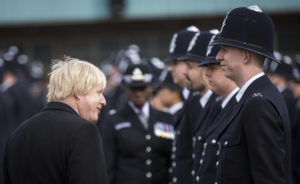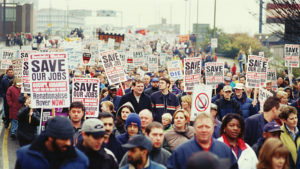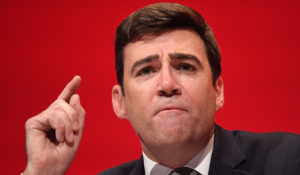As Boris Johnson prepares to exit No 10, leaving a country teetering on the brink of recession with widespread civil disobedience in the offing, it is time to consider a heretical thought: was Michael Gove right all along?
I do not mean whether he was right in his policy decisions or political stances, although this can’t be discounted. In the Coalition government of 2010-2015, it is near-impossible to recall a single policy which, either then or now, seemed like a good idea. Perhaps the sole exception was Gove’s free schools’ policy, which offered children from often disadvantaged backgrounds the chance to have a world-class education.
This was achieved in the face of extreme opposition from the trade unions — not least the teachers’ unions — and other parts of the Left. It was also passed with minimal support from sections within his own party. When David Cameron was shown the opinion polls ahead of the 2015 election, he fired Gove from Education because he thought his approval ratings were, largely thanks to the lies of the teaching “blob”, subpar for a leader wishing to win a general election. Nevertheless, Michael Gove was right — and it wasn’t for the last time.
After the 2015 election, he became known in Whitehall for his mastery of his brief. Most ministers who go from portfolio-to-portfolio struggle to understand the complexities of just one of their jobs, let alone each of them in turn. Yet this is exactly what Gove did at Justice — even though he was there for less than a year — and in each of the cabinet positions he subsequently held.
He was right, too, in the call he made in 2016. Before Gove chose to vote for “Leave”, there were concerns that the Brexit campaign would suffer from being led by too few senior politicians: an operation with Chris Grayling and Bernard Jenkin as its figureheads was unlikely to inspire a democratic revolt. Gove recognised this — and while campaigning to leave the EU was entirely in keeping with the principles that defined his political career and the years in journalism that preceded it, it still took bravery for him to step up. It alienated Gove from much of his friendship group (not least the Camerons), and could have cost him dearly politically.
The thing, though, that Gove was most right about, and for which he has been praised for the least, is the act which made him most infamous. It gave him a reputation for snakery. This was, of course, his decision in the immediate aftermath of the referendum to turn on Boris Johnson.
It is not easy to forget the febrile atmosphere of June 2016; every hour turned up enough news to last a month in normal times. But it was also a perilous time: people were genuinely afraid. Basic questions remained unanswered. Would EU citizens be allowed to remain in the UK? Who is running the country? Once David Cameron left office and his Chancellor, George Osborne, decided to punish the country further by disappearing completely, only the Governor of the Bank of England emerged to say anything on behalf of the nation. “We are all prepared for this,” Mark Carney reassured the country. Yet it was a moment of maximal instability.
The Leave campaign “victory” press conference the morning after the referendum was like a funeral. Perhaps the news of David Cameron’s political demise, and the looming Tory chaos that would follow, cast a pall over proceedings. Or perhaps it was the realisation of the task that lay ahead. In those uncertain hours, the one thing that seemed clear was that to the victor most go the spoils. Boris Johnson had led the Leave campaign and it seemed inevitable that he should become the leader of the Conservative Party and the Prime Minister of a newly independent country.
But Michael Gove put a stop to all that. Over the weekend after Brexit, something changed. Some people claim that Gove suddenly had visions of his own ascent to a higher office. Others believe that Nicholas Boles is to blame. Or was it that, in the aftermath of the referendum, Gove watched Boris Johnson and saw a man who was fundamentally unfit for the role of Prime Minister?
When Gove held a press conference in which he announced that he would not be leading Johnson’s campaign for the leadership, he immediately assumed a new role in the public imagination. Suddenly, he was Gove the turncoat, Gove the assassin, Gove the backstabber. The Gríma Wormtongue of British politics. The party swiftly showed its disapproval.
This cloud, by and large, has not left him. Only yesterday, one embittered newspaper columnist saw fit to describe Gove as “a conniving, reptilian politician”. Is this really true? He did, after all, survive through Theresa May’s premiership, and stuck loyally beside her when other people would not. He even entered Johnson’s own cabinet, and excelled in the roles he held in that short-lived administration. And not only is he the only politician who has remained at cabinet level through this tumultuous decade and a half, but he is also one of the few people from Cameron’s cabinet who is still in the House of Commons. Some lost out on the top prize and huffed off. Others whose abilities could have been of use to the country decided that the country did not deserve them — though various investment funds, as chance would have it, did.
It seems unlikely that Gove will actually remove himself from frontline politics. I read his announcement at the weekend as an act of cynical self-deprecation. Or perhaps a hint that he needs to simply “step back” for a bit. But whatever his own future holds, it shouldn’t prevent us from taking a clear view of his legacy.
Historians will debate when exactly Gove saw through Johnson. Perhaps it was during the referendum campaign or perhaps it was before it. Perhaps, like so many other people, he knew Johnson’s faults as well as his virtues, but simply hadn’t seen both in such clear focus before. Perhaps it was the lack of seriousness, lack of attention to detail and lack of hard work — the feeling of coasting when he should have been concentrating harder than he ever had in his life. Or perhaps there really were things in the immediate aftermath of the referendum that persuaded him that Johnson was fundamentally unfit to lead the country; the weekend after the vote, as the country desperately looked around for a leader, Johnson decided it was the perfect time to host a “boozy barbecue” and a cricket match.
It could have been some of these things, all of them or more. But after the thwarted, indecisive, wasted years of the Johnson government, there is one thing people should reconsider. In 2016, Gove didn’t simply backstab Johnson; he issued a warning. It took the rest of the Parliamentary party and much of Britain another six years to decipher his warning: that when Johnson finally lumbers out of No 10, he will leave defeated and humiliated. Don’t say we weren’t warned.
Disclaimer
Some of the posts we share are controversial and we do not necessarily agree with them in the whole extend. Sometimes we agree with the content or part of it but we do not agree with the narration or language. Nevertheless we find them somehow interesting, valuable and/or informative or we share them, because we strongly believe in freedom of speech, free press and journalism. We strongly encourage you to have a critical approach to all the content, do your own research and analysis to build your own opinion.
We would be glad to have your feedback.
Source: UnHerd Read the original article here: https://unherd.com/





